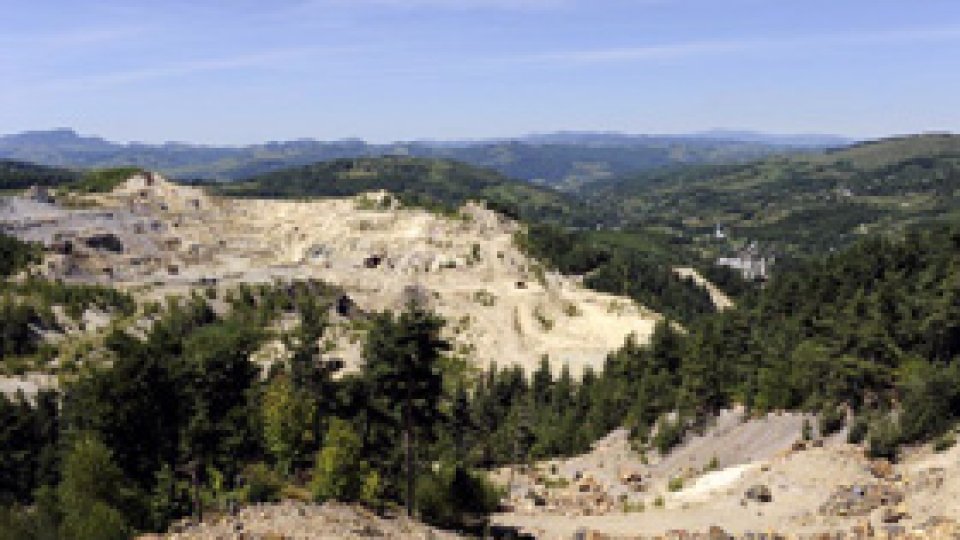A Parliamentary Commission for Rosia Montana
The Romanian Senators and Deputies have approved the setting up of a special commission for the Rosia Montana gold mining project.

Articol de Radio România Internaţional, 19 Septembrie 2013, 12:39
Located in the very heart of Transylvania, central Romania, a land known for its underground richness, Rosia Montana is a small village that literally sits on a gold mine.
It’s history goes way back in time. Two thousand years ago, Romans were among the first to dig for the gold in Rosia Montana, building a labyrinth of galleries to extract the precious metal, and the Roman shafts can still be visited today.
The 300- ton gold ore underneath Rosia Montaina is one of the biggest in Europe and the third biggest in the world.
The stake is even bigger, specialists say, because besides the gold, there are large amounts of rare metals, used in present-day high level technology. Adding to that are 1 thousand 600 tons of silver.
Blocked for several years now due to divergences over environmental issues, the investment in Rosia Montana was included in the National Plan for Investments and Jobs that the Romanian Government has recently launched, presented as an exploitation project that observes new environmental standards.
The state estimates 78% benefits from the projects’ output. Late last month, the Government decided to approve a draft law regulating the exploitation of gold ores in Rosia Montana by a Canadian company. The document had been submitted to Parliament for approval.
The decision, however, triggered a wave of protests, by those who oppose the mining project in Rosia Montana. Protests started on September 1st and have been held in Bucharest and elsewhere in the country. People also protested abroad, in London, Brussels and Istanbul.
Protesters are supported by ecologists and historians, who warn that the use of cyanide to extract gold can irreversibly damage the environment, and mining as such would destroy important historical vestiges.
On the other side of the barricade, the supporters of the project, mostly locals, say that opening the mine in Rosia Montana would create jobs and thus solve the economic and social issues facing the area. Apparently intimidated by the wave of discontent, Prime Minister Victor Ponta has decided not to take responsibility for this controversial project and announced the setting up of a special commission in Parliament, to analyze the Rosia Montana project.
On Tuesday, the leadership of the two Chambers decided to set up the commission, which will hear all the parties involved and will subsequently draw up a report that will be submitted to the two chambers. Around November 1st, the Chamber of Deputies, which is the decision-making body in this case, will either pass or reject the draft law.
More news on RRI.














